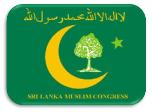“This is neither a counter proposal nor a rejection of the LLRC. We feel that a truth commission can play a very important role among communities. The victims seeking justice can be said sorry for mistakes in the past. These will be honest declarations and the idea is not to prosecute anyone”, Kariappar explained.”
Sri Lanka’s main Muslim minority party has proposed the setting up of a truth commission to achieve reconciliation in the country which has witnessed three decades of civil war.
Nizam Kariappar, the Sri Lanka Muslim Congress (SLMC) deputy secretary, however stressed that the proposal for a truth and reconciliation commission was complementary to the Lessons Learnt and Reconciliation Commission (LLRC) set up after the defeat of the LTTE.
“This is neither a counter proposal nor a rejection of the LLRC. We feel that a truth commission can play a very important role among communities. The victims seeking justice can be said sorry for mistakes in the past. These will be honest declarations and the idea is not to prosecute anyone”, Kariappar explained.
On the LLRC he said the Muslims want early implementation of the recommendations even though some of the areas of Muslim concerns such as the displacement of the northern Muslims had not been addressed in the LLRC recommendations.
Nearly 100,000 Muslim were evicted from Jaffna by the LTTE in 1990 as part of their ethnic cleansing of the Tamil Eelam (separate Tamil nation).
The Muslim issues in the eastern province have proved to be a thorn in political negotiations to any arrangement on sharing of power with the Tamil minority.
All three communities Sinhala, Tamil and Muslim form the eastern population in identical proportions.
The main Muslim party had studied the recommendations of the LLRC in order to forward the feedback to the government.
The ruling United People’s Freedom Alliance (UPFA) had asked its constituent parties including the SLMC , to send in their observations on the LLRC in order to formulate its action plan.
The LLRC action plan from the government is of high importance in view of the US sponsored resolution adopted with the backing of India at the last session of the UN human rights council held in March.
The resolution urged Sri Lanka to address the issue of accountability on human rights and move for reconciliation with the Tamil minority through the full implementation of the LLRC recommendations.
The LLRC was a commission of inquiry appointed by Sri Lankan President Mahinda Rajapaksa in May 2010 after the civil war in Sri Lanka. The commission was mandated to investigate the facts and circumstances which led to the failure of the ceasefire agreement made operational on February 27 2002, and to promote further national unity and reconciliation among all communities.
BS
